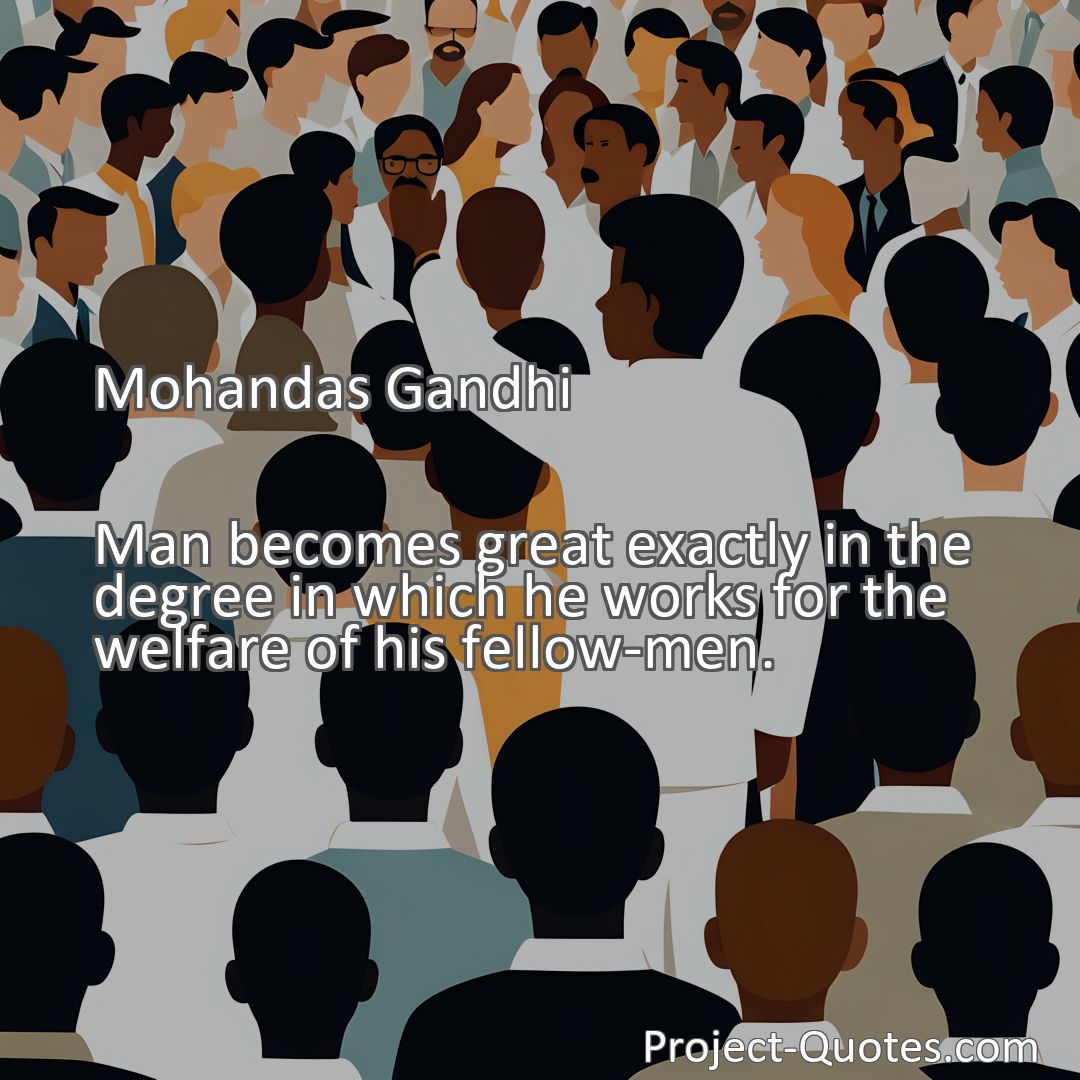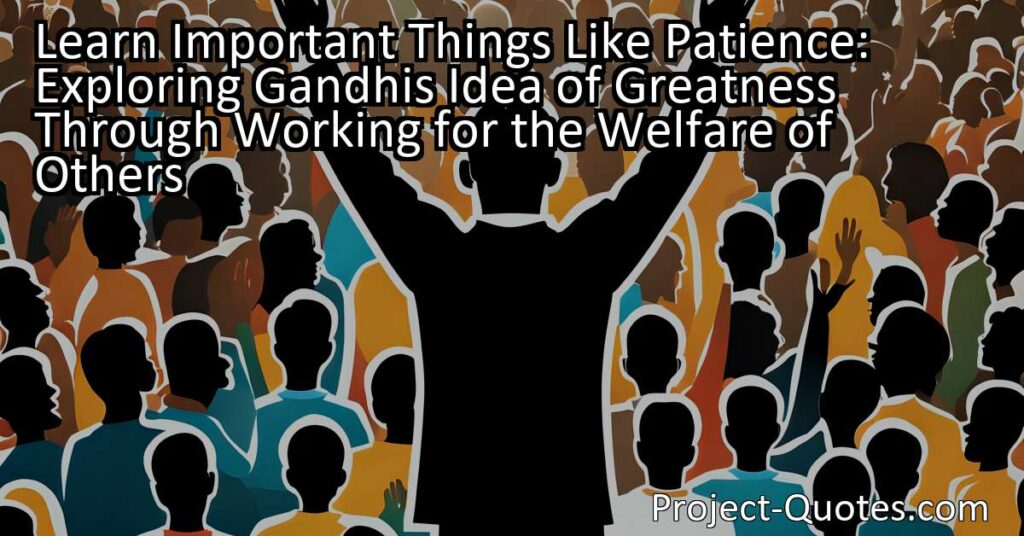Man becomes great exactly in the degree in which he works for the welfare of his fellow-men.
Mohandas Gandhi
In this article, we explore Mahatma Gandhi’s idea of greatness through working for the welfare of others. Gandhi believed that true greatness comes from helping others without expecting anything in return. Through acts of kindness, empathy, and thinking beyond ourselves, we can make a difference in the world and become better versions of ourselves.
Table of Contents
Meaning of Quote – Man becomes great exactly in the degree in which he works for the welfare of his fellow-men.
Mahatma Gandhi, a leader known throughout the world for his peaceful fight for Indian independence and his philosophy of nonviolence, once said, “Man becomes great exactly in the degree in which he works for the welfare of his fellow-men.” This quote may seem simple at first glance but it holds a deep and beautiful meaning about what it really takes to become a great person in this big world.
So, what does Gandhi mean when he talks about working for the welfare of others, and how does this make someone great? Lets think about the people in our lives and in history who we genuinely look up to. These could be people close to us like our parents or teachers, or even famous figures who have made a big impact on the world. Often, the people we hold in high regard are not just those who have achieved something for themselves, but those who have helped others, made a difference, or improved the world in some way.
When you help someone, youre not only solving a problem for them or making their day a tiny bit better, but you’re also spreading kindness and showing that you care about more than just yourself. This could be something as simple as helping someone with their homework, standing up for a friend who is being picked on, or even doing chores at home without being asked. These actions create a ripple effect. The person you helped might be inspired to help someone else, and before you know it, one good deed has sparked another, and then another.
Gandhi believed that true greatness comes not from wealth, fame or power, but from how much you give to others without expecting anything in return. A person might be super famous and have a lot of money, but that doesn’t automatically make them ‘great’ in Gandhi’s eyes or in the eyes of the world. To be truly great means to have a compassionate heart and a willingness to put others before yourself sometimes.
Now, lets talk about what it means to work for the welfare of others. Welfare means the health, happiness, and fortunes of a person or group. So when Gandhi talks about working for the welfare of our fellow-men, hes talking about doing things that contribute to the wellbeing of people around us and the community as a whole. This could mean volunteering at a local food bank, organizing a cleanup at your park, or even just listening when someone needs to talk.
Working for the welfare of others also means thinking bigger than ourselves. Its about understanding that we are all connected, and the actions we take can affect the lives of people we may never even meet. For example, by recycling or using less plastic, you’re helping to keep the environment clean for everyone. Its a way of caring for people’s welfare by making sure they have a nice planet to live on, too.
Sometimes, working for the welfare of fellow human beings means standing up for what is right when it’s hard. Gandhi himself fought for the rights of people who were treated unfairly, and he did so without hurting anyone. He showed that you could change the world through peaceful means. Even today, there are many peaceful ways to work for the welfare of others such as supporting charities or being a part of awareness campaigns for issues like climate change or equality.
Now, let’s think practically. You might be wondering, “How can I, as one person, actually make a difference in the world?” It’s a big question! Every big change starts with small steps. For you, it might be as simple as sharing your lunch with a friend who forgot theirs, or helping your younger sibling with their homework. Maybe you’re passionate about animals and start a club that makes toys for pets in shelters. Or perhaps you enjoy reading and decide to organize a book drive for those who don’t have access to many books.
Another important part of working for the welfare of others is empathy, which means understanding and sharing the feelings of someone else. When you can really feel what someone else is going through, it helps to be kinder and more helpful to them. It’s like putting yourself in their shoes and imagining how you would want to be treated if you were in their situation.
Greatness doesn’t happen overnight and working for the welfare of others is not always easy. It might mean giving up some of your time or stepping out of your comfort zone. But when you do so, you not only help others but you also grow as a person. You learn important things like patience, understanding, and teamwork. These life lessons make you not just great, but also a better friend, student, and family member.
By following Gandhi’s idea, you can start to see the difference between being famous and being great. Greatness comes from the heart and from the countless little acts of kindness that are done day after day by people like you and me. Remember, every act of kindness is like a pebble thrown into a pond, causing ripples that carry on far beyond the initial splash. In other words, your actions, no matter how small, have the potential to create waves of change and bring out the greatness in you.
In conclusion, Gandhi’s quote is a reminder that to become truly great, we must look beyond ourselves to the wider community and the world at large. It’s about using what we have, whether its our time, skills, or resources, to contribute to the happiness and well-being of others. By doing so, we not only make the world a little bit better but also become the best version of ourselves.
I hope this quote inspired image brings you hope and peace. Share it with someone who needs it today!


